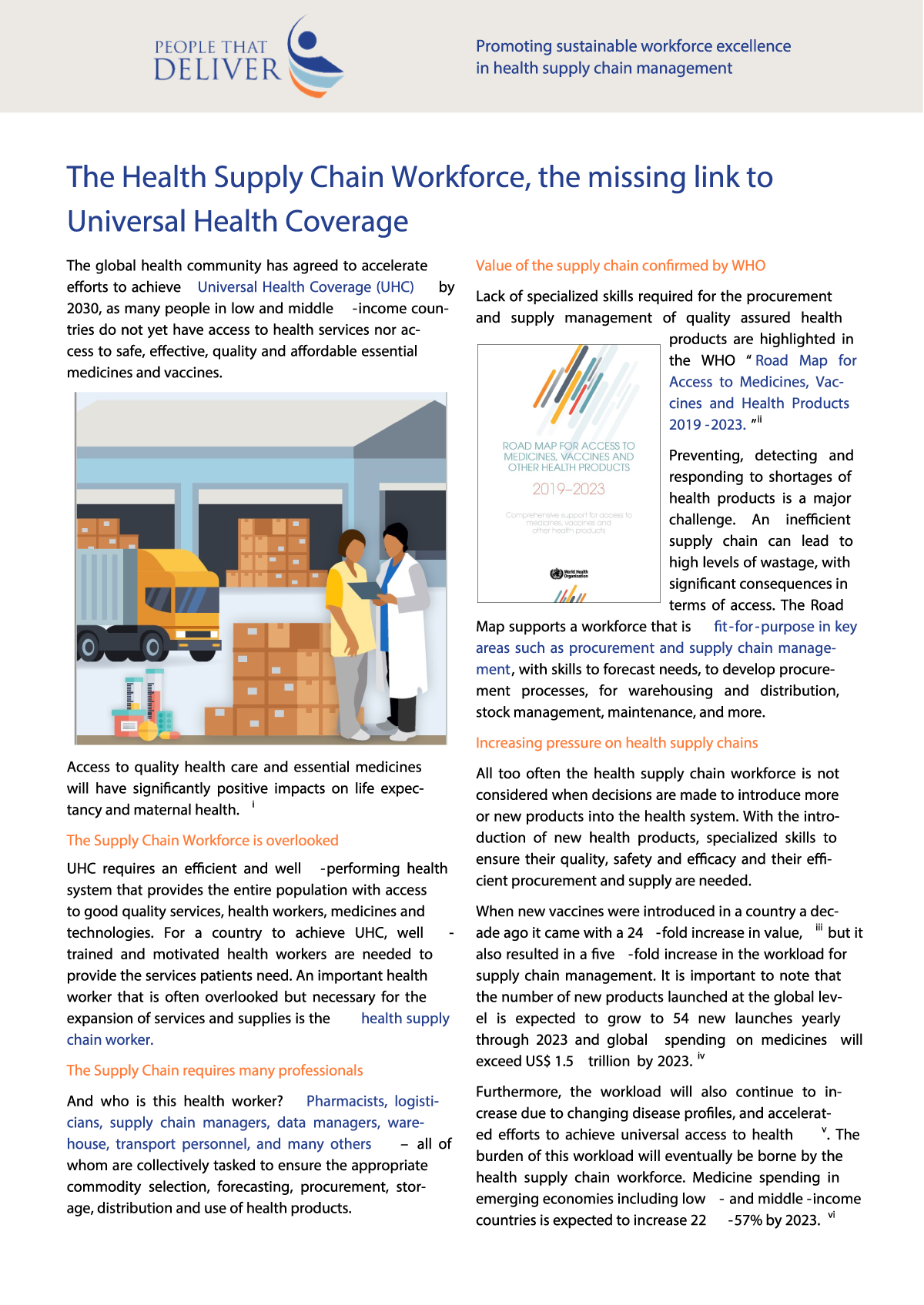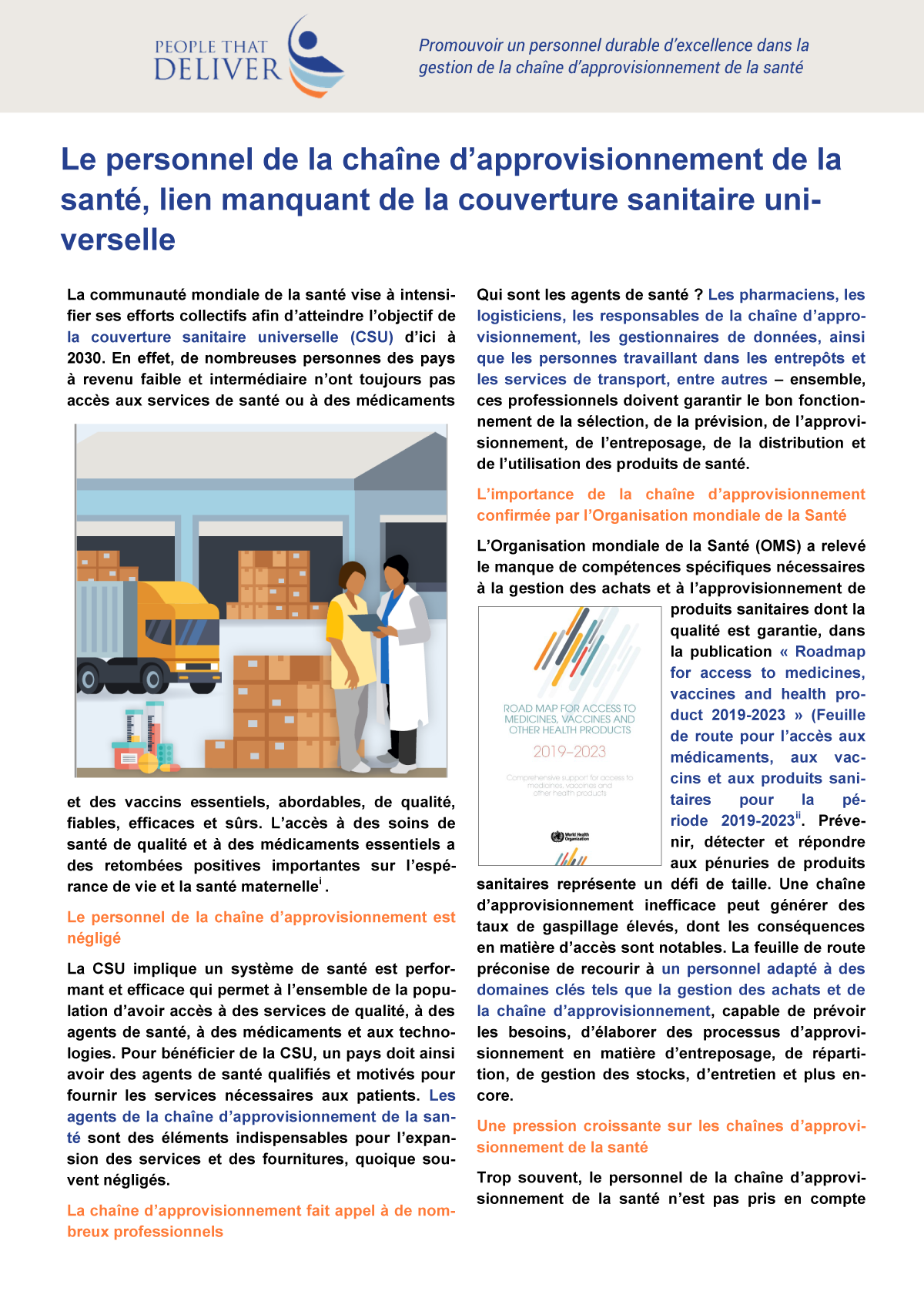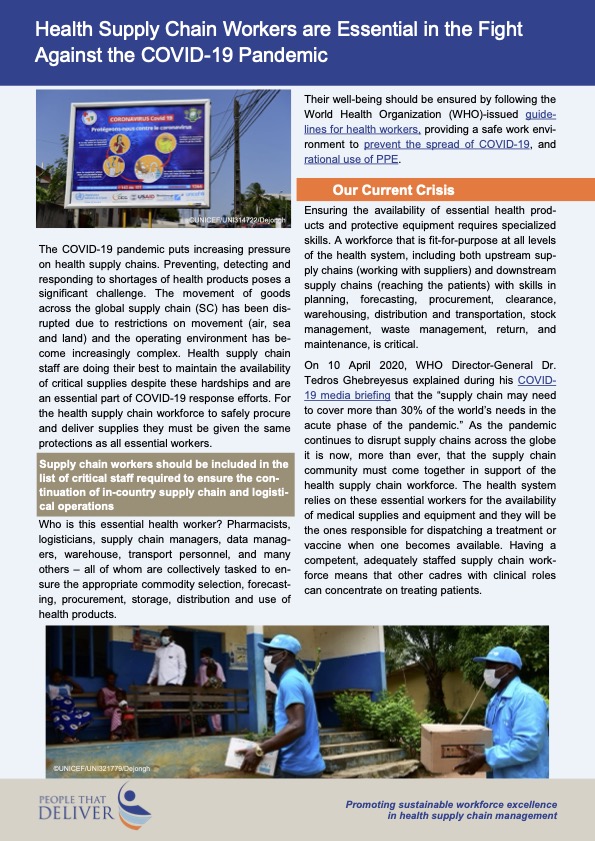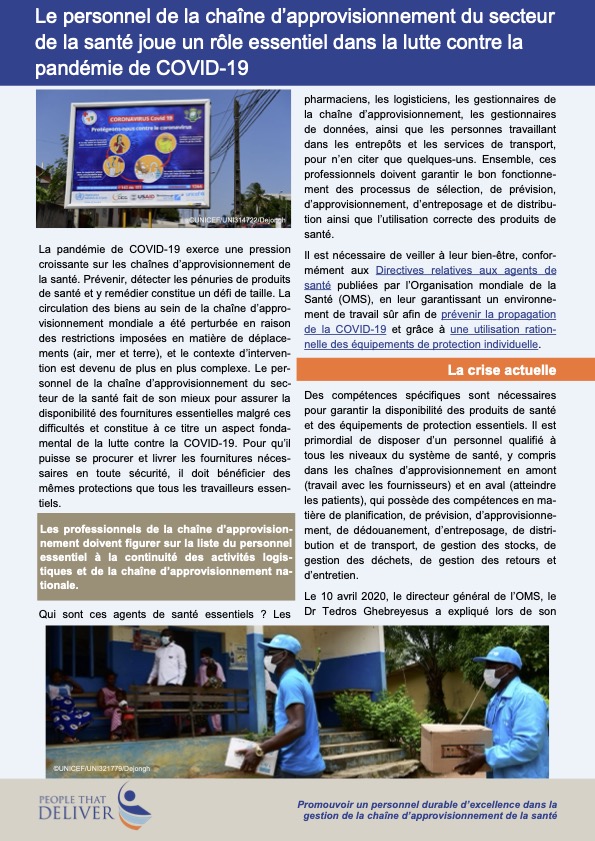Image
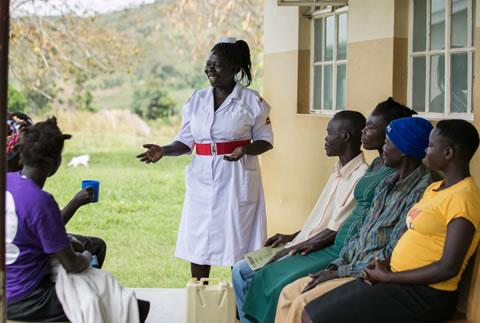
Advocacy
PtD advocated a systematic approach to human resources (HR) for supply chain management (SCM) – a holistic approach that strives towards the efficient management of health supply chains through an empowered and well-equipped health supply chain workforce. PtD also advocated interventions that improve the demand and supply of qualified health supply chain professionals in organisations. In turn, this strengthens the individual practitioners within health supply chain organisations.
PtD took a holistic approach to developing workforce excellence in supply chain management, built around three components necessary for success:
- The active involvement of a broad range of key stakeholders from global, regional and national organisations, as well as individual supply chain workers.
- The development and dissemination of materials that accommodate and can be adapted to a wide array of countries and environments.
- Recognition of the diversity of supply chain positions and roles within a health system, and the knowledge and skills required.
More specifically, at the global and national levels PtD advocated:
- Improved policies, organisational design (having the required staff) and organisational strength (the leadership to manage effectively) in key public and private sector, non-profit and commercial organisations with a supply chain responsibility;
- More and improved resources (government, non-government, national and international) to support a qualified and educated health supply chain workforce;
- HR systems to plan, finance, develop, support and retain a competent workforce; and
- Improved mechanisms to support the professionalisation of a qualified and educated health SC workforce. Put simply, this means health supply chain workers are a recognised cadre within the health system and have the right competencies, skills, and qualifications to fulfil their roles.

